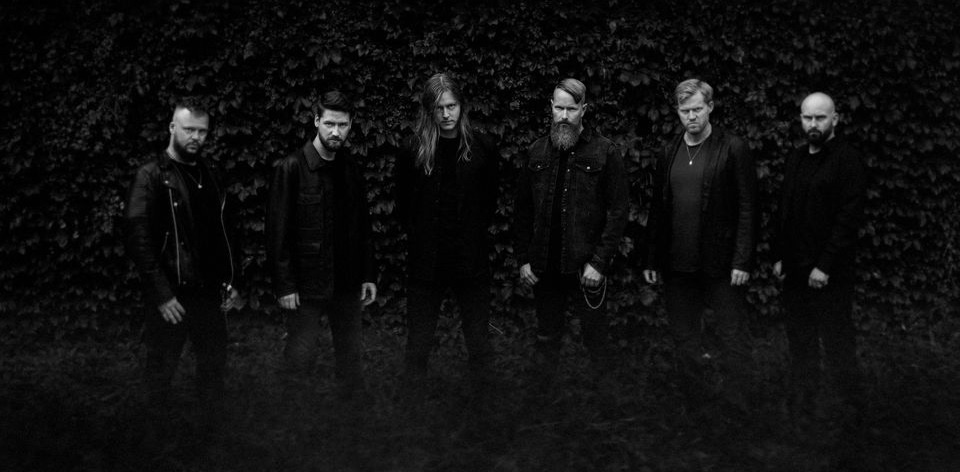
(In Vain‘s is out next week, and Andy Synn decided it deserved an advance review)
Scores, huh? What are they good for?
Absolutely nothing… well, most of the time anyway.
Let’s face it, when so many sites/zines are giving out nothing but 8s and 9s out of 10 (and don’t get me started on the ones who seem to think that adding a decimal point somehow makes them look better) the whole idea of assigning an arbitrary rating to things has been rendered even more meaningless than it already was.
I get it though, writers don’t want to lose access to promos and interviews, and a flashy score and an equally splashy feature quote (more often than not using the word “masterpiece” so as to even further dilute its meaning/value) is a great way to get yourself featured in PR emails and social media posts.
But is any of it actually good for the fans, let alone the bands themselves? Wouldn’t it be better to actually focus on providing some useful insight and analysis and, yes, even some actual criticism, so that the readers (and prospective listeners) actually take something away from what you’ve written beyond just the rating at the end?
Well, let’s find out, shall we?

My history with Norwegian Prog-Metal maestros In Vain is a long and storied one, that’s for sure, and has certainly had its ups and downs over the years (I’m sure there are probably just as many people out there still mad at me for declaring how disappointed I was by 2018’s Currents as there are those who love me for proclaiming 2013’s Ænigma one of the best albums of the last decade).
But, from where I’m sitting at least, that makes it easier for me to assess Solemn, the group’s long-awaited, and long-gestating, sixth album on its own terms, rather than trying to assign some sort of arbitrary value to it unrelated to what it’s actually trying to achieve.
For example, it would be easy to simply state that Solemn is, overall, a little too long for its own good – but that’s not actually a comment on the length of the album in minutes (after all, only two of the band’s albums prior to this have actually come in under the hour mark, and this one is a good 5-6 minutes shorter than both The Latter Rain and Mantra) and more about how not all of its nine tracks fully justify their individual run-time and, by dragging themselves out a little too much, thus drag down the rest of the album a little.
There are also a few moments (such as during opener “Shadows Flap Their Black Wings”) where the band lean a little too heavily on certain tricks from their back-catalogue – which is perhaps to be expected on occasion, and certainly seems like an unconscious slip, rather than a lack of ideas or inspiration – meaning that long-term fans in particular might be assailed, every now and then, by a feeling of familiarity that’s hard to shake.
However, in spite of these issues I still find Solemn to be an altogether stronger and more engaging album than its predecessor, which is a testament to just how strong its best songs are.
“Season of Unrest” is a clear early highlight, for example, with its moody, sax ‘n’ synth infused mid-section adding an even proggier aspect to the track’s artsy amalgam of surging riffs and soaring vocals, while the darker and (subtly) doomier strains of “At the Going Down of the Sun” showcase the band at their most boldly bombastic and scintillatingly cinematic.
It’s the second half of Solemn, however, which proves to be the strongest section of the record, with the more aggressive approach (and liberal use of lithe lead guitar melodies) of “Beyond the Pale” and the epic extremity of “Blood Makes the Grass Grow” (whose slow but steady evolution, every part and every passage proceeding smoothly and organically from the one before it, helps it build towards an absolutely outstanding, and well-earned, crescendo) making two of the strongest impressions on the entire album (the latter in particular).
And while “Eternal Waves” only gets really good at around the half-way point, the band have absolutely saved the best for last, as spellbinding closer “Watch for Me on the Mountain” – equal parts grandiose metallic majesty and morose, reflective vulnerability – proves to be not just a fantastic finale for the album but also (in my opinion, at least) one of the best songs the band have ever written. It really is that good.
So what, then, should you take away from all of this in advance of the album’s release next week?
Well, Solemn is a good record, no doubt. Sometimes very good, in fact. But there’s no score I could assign it that would really tell you anything more than that.
Let’s face it, whatever rating I would give it wouldn’t reveal anything about the album’s shape or structure, or how much effort and emotion went into its creation, nor would it say anything about the record’s flaws or how those self-same flaws also serve to highlight, by way of contrast, those moments where Solemn actually exceeds your expectations.
And while it may not be the best work of the band’s career (that title still, and perhaps always will, belong to Ænigma) it deserves better than to have all its creative complexities and elaborate artistic ambitions reduced to a mere number. Because it is better than that. And so, I hope, was this review.
